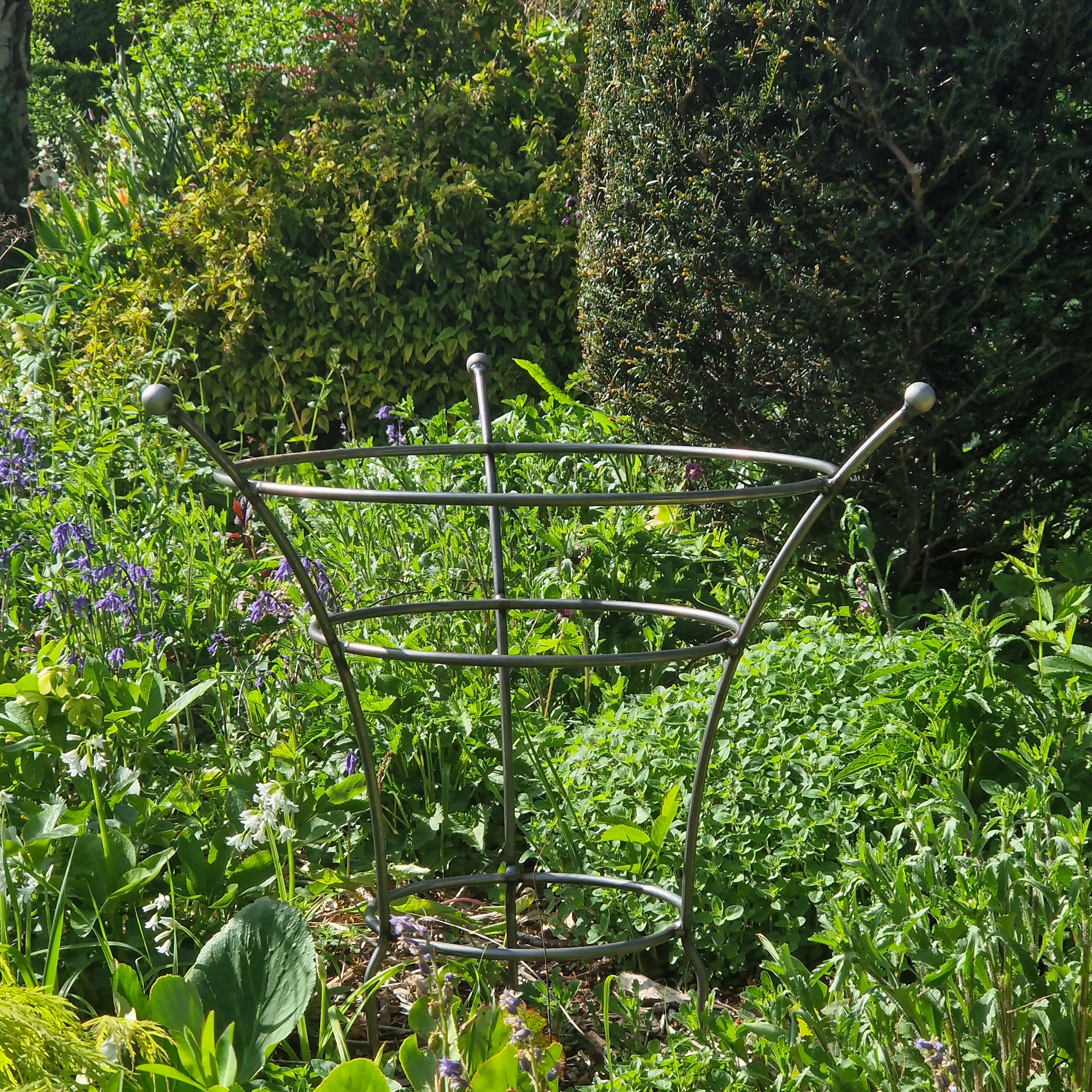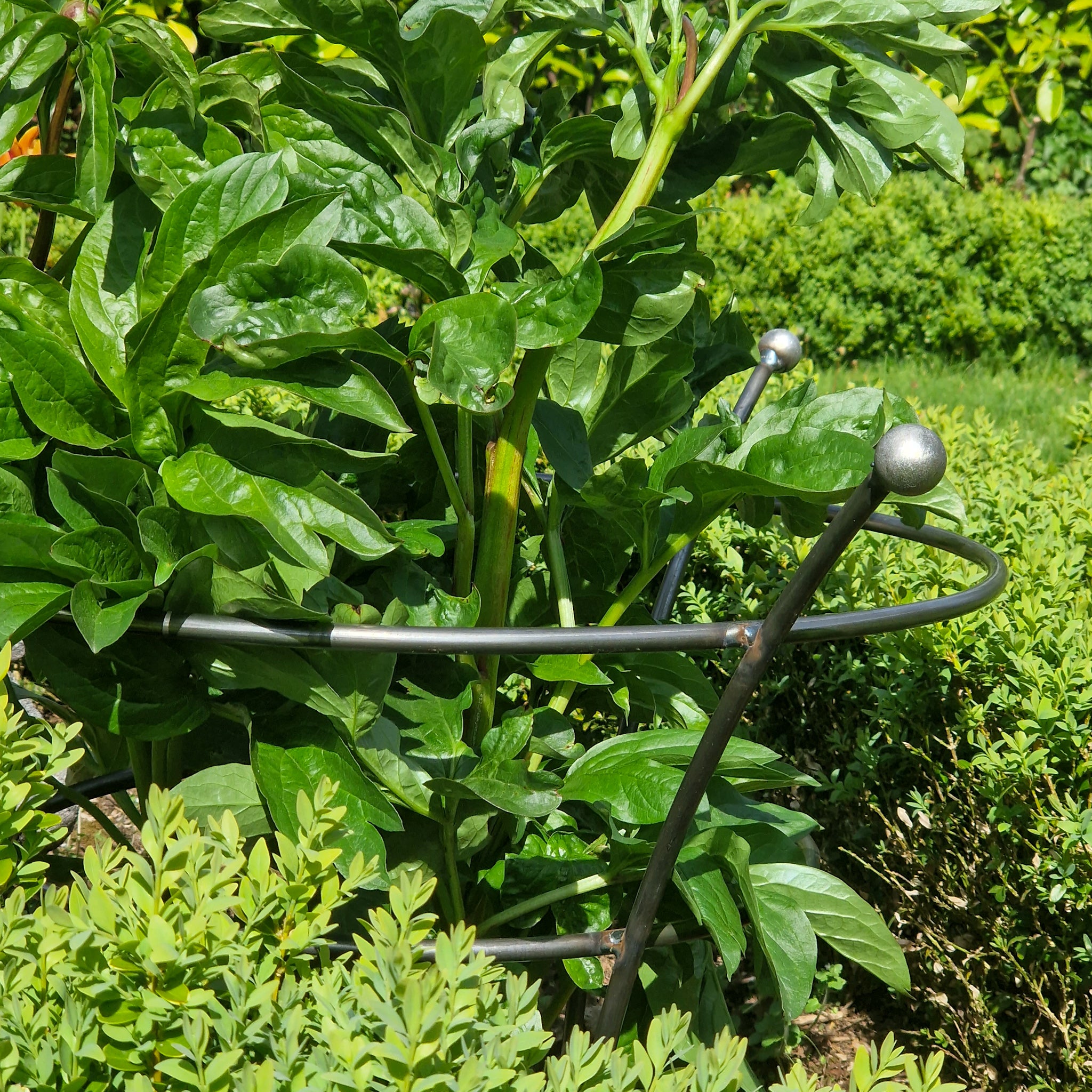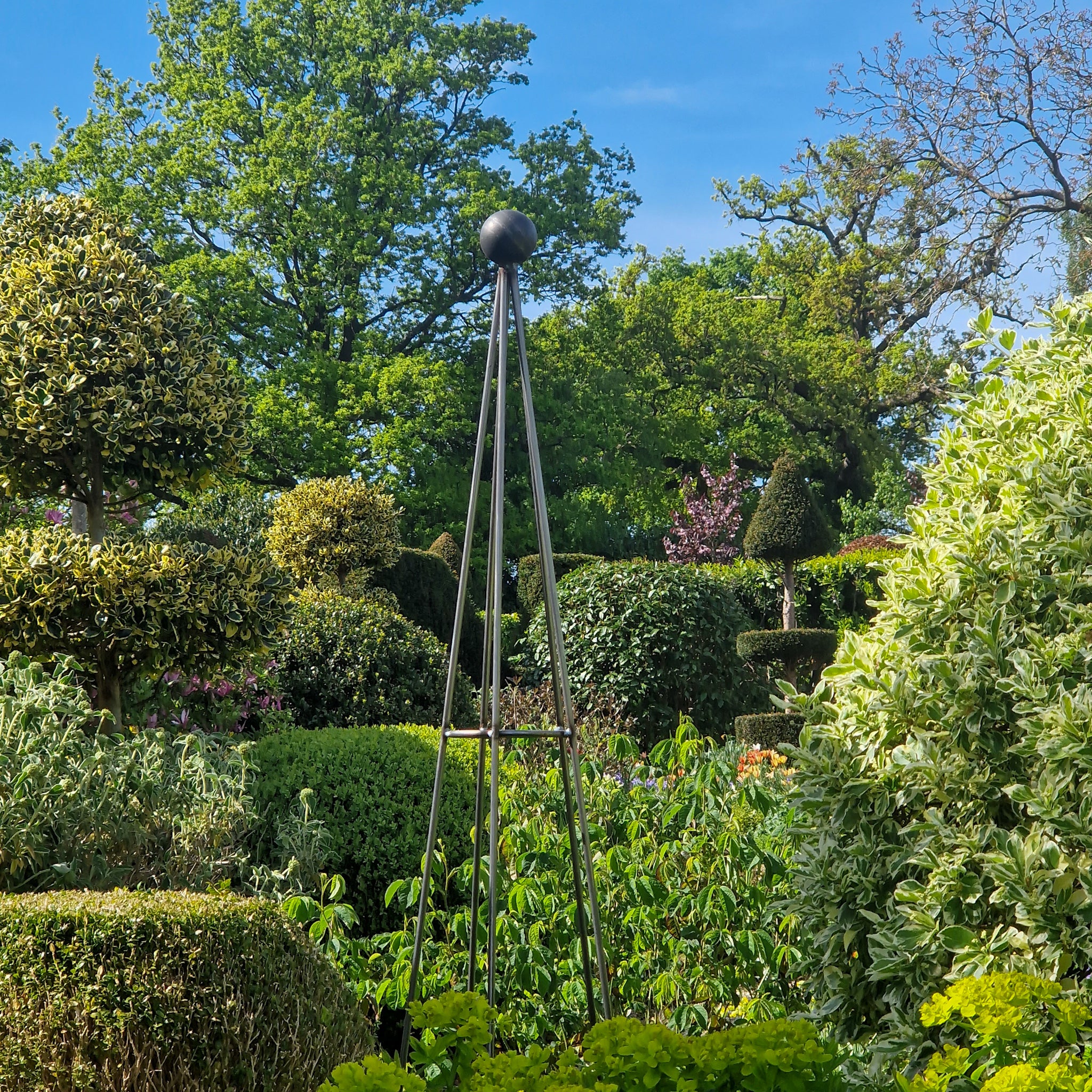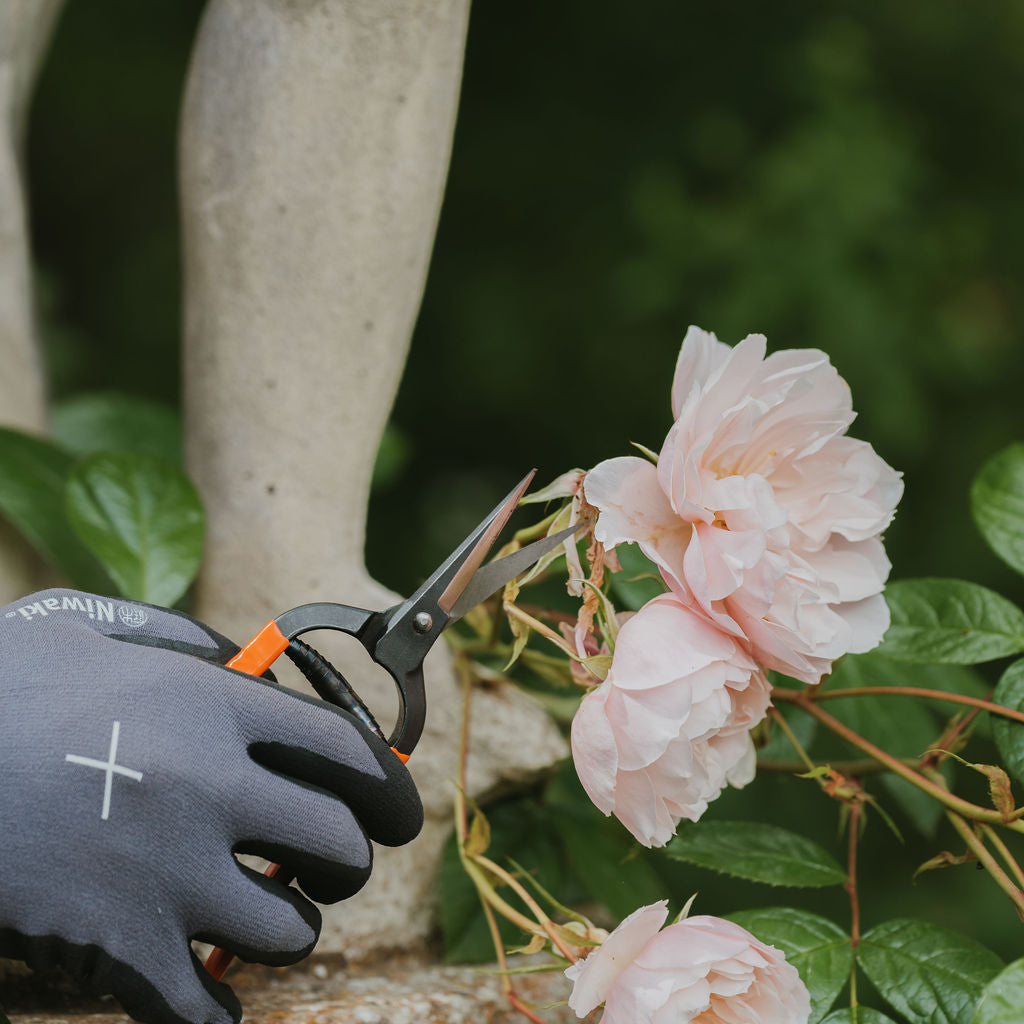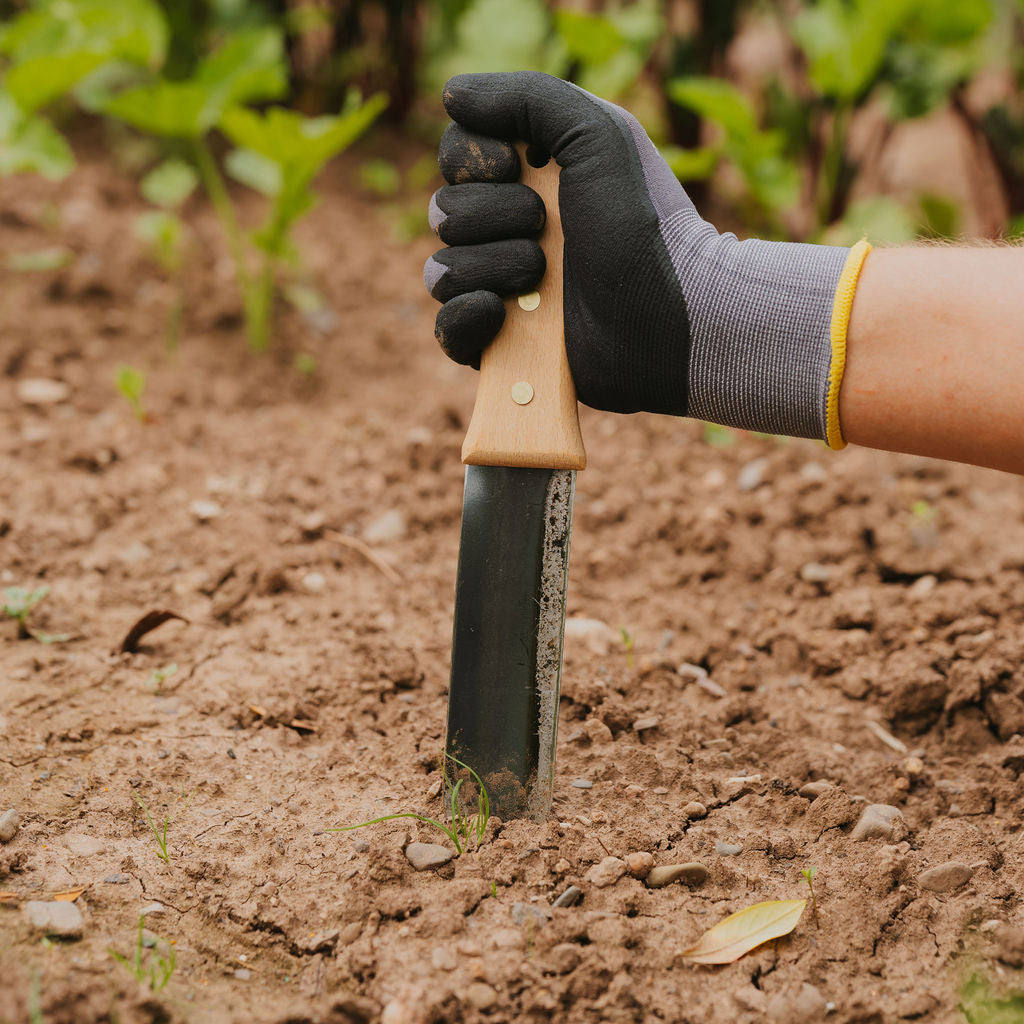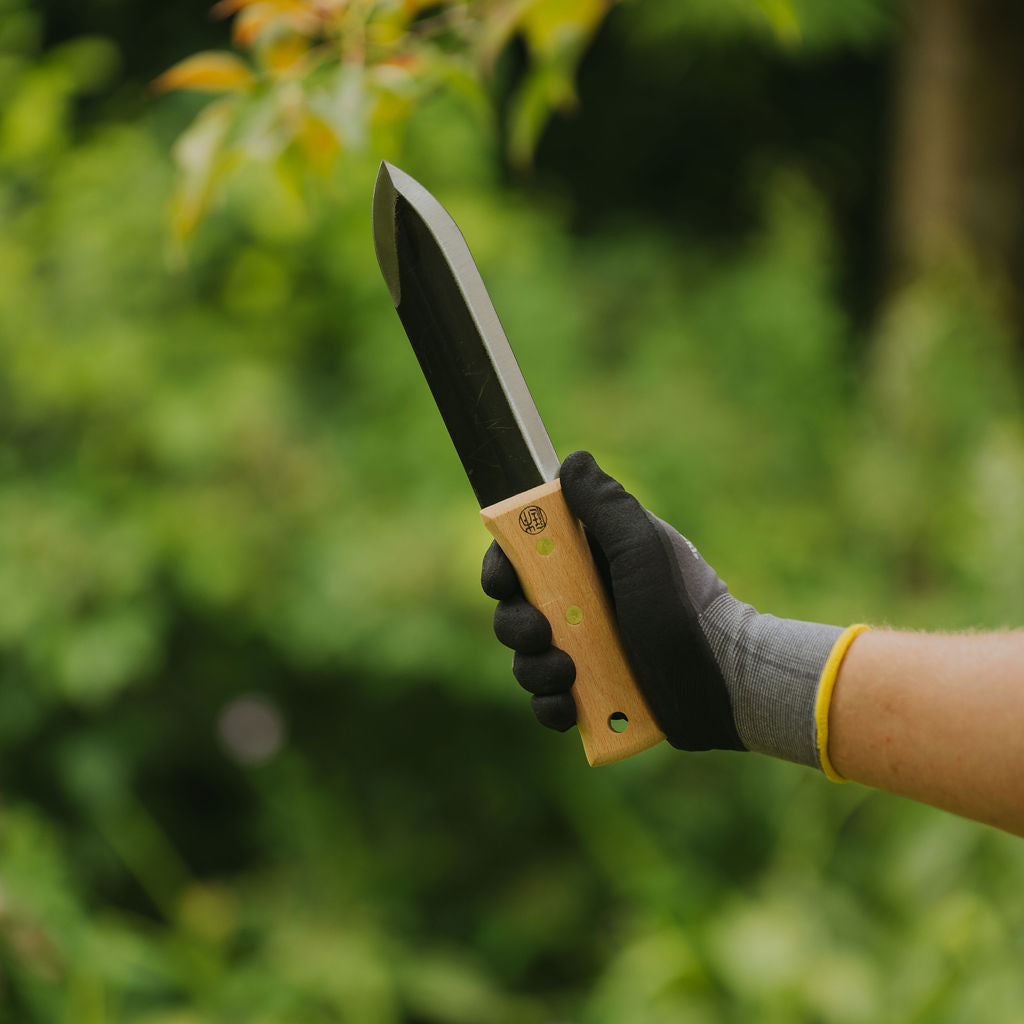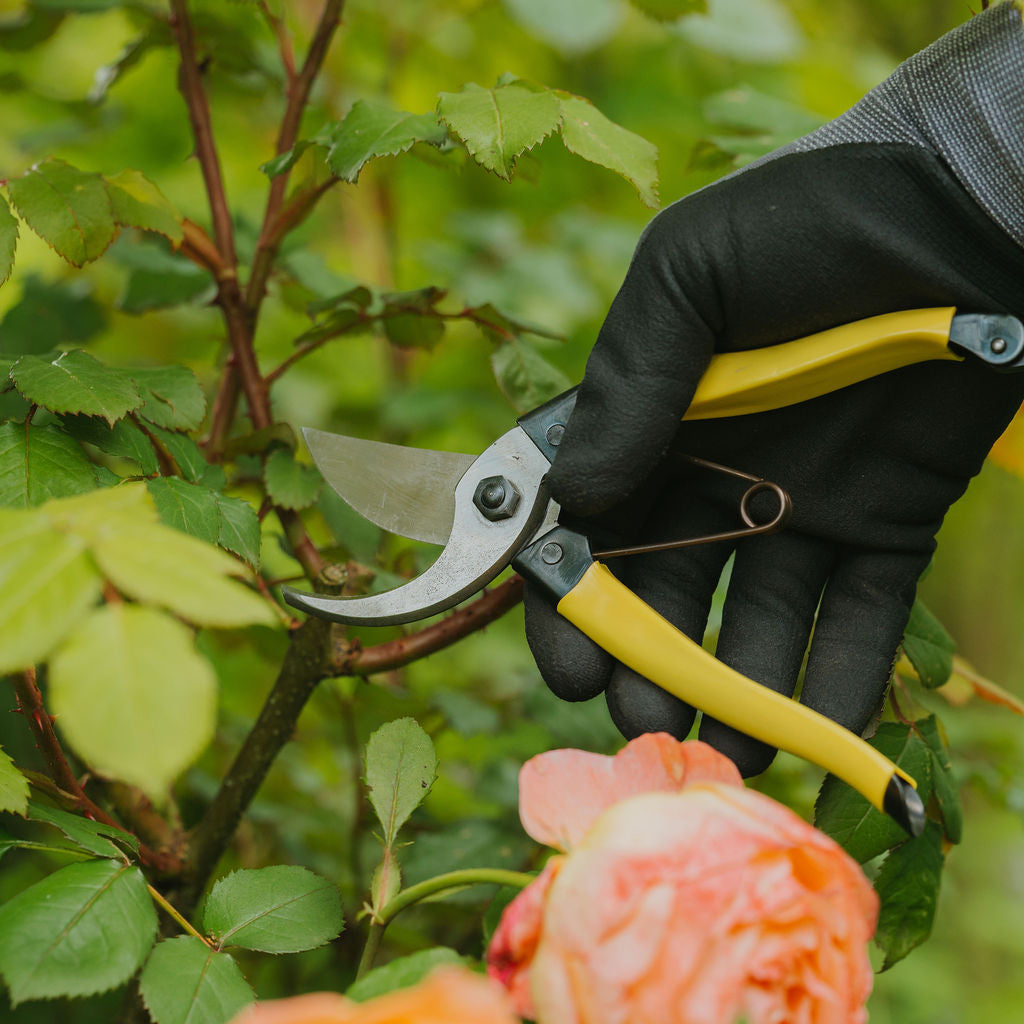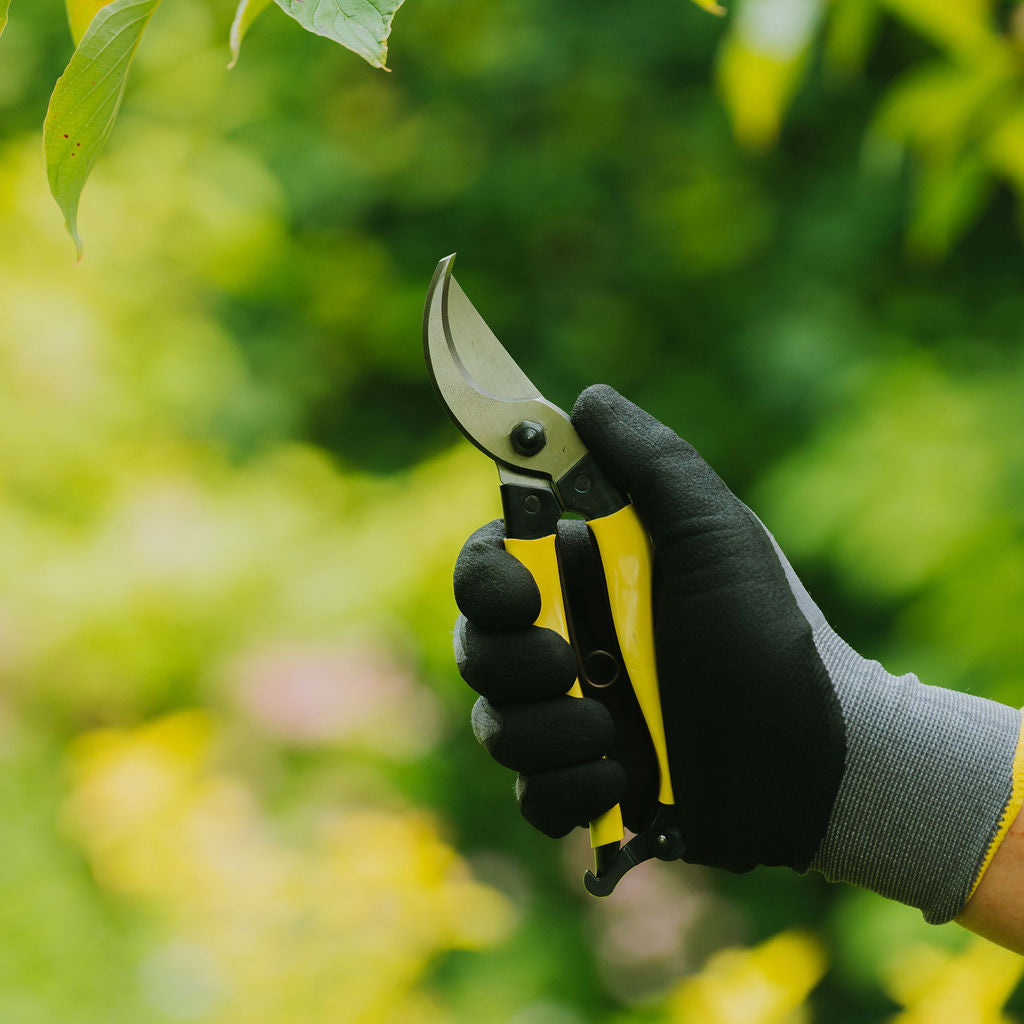In this episode I'm introducing you to two very good friends of the business - Fi & Liz, owners of Newhope Daylilies.
Nestled away in the spectacular Shropshire Hills, their field-based nursery contains the most daylily varieties found this side of the Atlantic. With over 250 different varieties, anything not included is either very hard to get hold of or probably not worth having!
Although they are based in rural Shropshire, they offer a great online postal service; So wherever you may be, you can have access to their beautiful plants. Click here to go through to their website... prepare to be tempted!

What made you both decide to take on the specialist nursery?
Liz: I was busy building bespoke bicycle frames in a workshop on the same site where Mark Zenick was growing and selling his daylilies from his vast collection. He always waved when he passed and then one day introduced himself and mentioned there was a daylily called 'Lady Liz'. As I had to take more and more time off framebuilding to care for my elderly mum, he was a great source of encouragement and during the summer, I would go up and eat my sandwiches with him...of course I'd potted up a 'Lady Liz' by then and had this outside my workshop in the full on sunshine. Scroll on a few years and I was busy deadheading blooms in the field for him and taking photos of them and learning their names. Something was occurring as after 35 years in the bike trade, I felt a natural end was on the horizon - it's probably no coincidence that this happened after my mum died. Being with the daylilies and seeing them at every stage of their perennial life cycle, was very comforting. Mark started to discuss that he was getting on in years and felt the nursery needed a new owner but I knew I definitely couldn't do this on my own. I started to study horticulture with the RHS and a few years later - the stars aligned and Fiona started looking after the nursery with me and Mark.
Fiona: I, like Liz, have followed an interesting path to becoming a Plantswoman! I pursued a career in banking and more recently as a School Business Manager, understanding and enjoying the importance of building strong relationships with people in both roles. I moved with my family to a small hamlet near Bishop's Castle 27 years ago (and just down the road from New Hope) and fell in love with the beautiful hilly landscape and rural way of life in South Shropshire. With a large walled garden to develop and subsequently maintain, my knowledge and passion for perennial planting has grown and I've quickly learnt the hardier the perennial, the better! During Covid lockdowns I also developed a large 'cutting patch' of beautiful blooms at home, realising the huge physical and wellbeing benefits of working outside with all that nature throws at us!

Liz & Fiona (Left & Right)
We're a good Yin and Yang team! We've been friends for many years and whilst working alongside Mark we realised that our combination of skills and a shared passion for horticulture, including the hemerocallis, could take New Hope into an exciting new era. Mark has been able to retire knowing his legacy is in safe hands and continues to thrive.
What is it about daylilies that you love so much?
The excitement of their journey from green shoots in winter to the gradual build up of foliage and then the fanfare that blooms are on their way when the scapes shoot up. The day a daylily comes into flower feels very special as that bloom will only last a day. It's a message to seize the day and it's a cause for celebration - the excitement is wonderful to share. They really do have a commanding presence when in bloom. At the end of the day, we both enjoy picking the flowers to adorn a summer salad. It means we have really made the most of that daylily bloom - full of Vitamin C - and we know there will likely be another blooming tomorrow. Each plant can have several scapes and each scape can have many buds, ensuring life and wonderful colour in the garden for weeks during the summer months.

We are blessed with a lovely location, nestled within the South Shropshire Hills, which offer the perfect peaceful backdrop for the beauty of our field full of blooms in Summer.
The best part of running our specialist nursery is having such a wonderfully supportive and loyal existing customer base. It has become way more than a business for us, and a community based on great friendships ... our annual Open Weekends in June and July give the opportunity for old and new customers to visit us and chat for hours while they share a cup of tea, eat lots of homemade cake and wander through our field full of blooms with us. That bit never feels like work to us!

I’d love to find out more about the background of daylilies. Where are they native to & what’s their natural habitat? Surely not the Shropshire hills!
Ha, you're not wrong there, Tom. They are native to the east; Japan, Siberia, Korea and China and would have come to Europe and the Americas via trade routes. Early pioneers appreciated how easy they were to propagate and they soon became a regular part of the homestead garden. They can be seen depicted in early artworks and referred to by 16th century herbalists, who documented their therapeutic properties.

You must give us some top tips about growing daylilies throughout the year. Are they fussy plants to care for?
The humble daylily is no prima donna, they really are one of the hardiest of perennials. We can't remember where, but one plant experimenter tried to kill a daylily and struggled. We see them coming up in the compost pile sometimes and once, when lost in the post for weeks, after a quick soak and popped back into the soil they were soon back to full health. They like a sunny spot and will grow in all soil types but don't do as well in very wet ground. Having said that, folk in N.America refer to them as the 'ditch lily'! So, actually nature being very good at cooperation - if they end up in a ditch, they clump up so fast and their collective roots can absorb masses of water. We have even heard that huge ribbons of daylilies have acted as natural fire breaks in parts of the States.

It would be crazy of me not to ask - how are they for growing in pots? Any specific recommendations?
They do well in pots, Tom. They clump up so after about 3 to 4 years, you would be wise to de-pot and divide them. The thing with all plants in pots and containers are they are reliant on us humans to keep an eye on them so a daylily in a sunny spot in its pot would like a morning water once a week in summer but will forgive you if you go on holiday for 2 weeks ... such a gracious and forgiving plant! Choose a V shaped wider top pot rather than a narrow necked pot or you'll be struggling to get the plant out!

After a recent visit, 15 different varieties sat in one of my XL Italian Troughs.
Your vast collection includes so many colours and profiles… How many do you currently have for sale and what is the story behind some of the wacky names? Would these be modern hybrids?
We have over 300 different Hemerocallis cultivars now. Just to put that in perspective, a garden centre would probably stock at least 3 and up to about 8. The wacky names like 'Outrageous Ramona', 'Bumble Bee', 'Primal Scream' and 'Voodoo Dancer' are given to the plant by the hybridiser who will know the parentage and will have spent several years breeding a new cultivar. They then have to register the name officially.

One of our newest additions to our collection is 'Punxsutawney Phil',which is a tetraploid hemerocallis introduced in 2003 by hybridiser Dan Trimmer, and gives a wonderful nod to the legendary groundhog from Punxsutawney! This daylily is currently in propagation at New Hope so isn't yet on our website, but hopefully its vibrant blooms will be on full show ready for our Open Weekends in June and July.

Punxsutawney Phil - quite a flower with a strong two-tone.
Similar to snowdrop fanatics being labeled ‘Galanthophiles’, are there many ‘Hemerophiles’ who go crazy over these blooms?
Absolutely! More so in the States than ol' Blighty. An American called Dr Arlow Burdette Stout (A.B.Sout) was key in whipping up enthusiasm for the daylily in the 1920s. He ended up in a high position at the New York Botanical Garden, but en route did some pivotal hybridising and started the craze. There are thousands of hybridizers now across the world which is why there are literally thousands of registered cultivars. Unfortunately, there are also many backyard hobbyists called 'pollen daubers' who don't register their crosses so there are lots of daylilies out there with names you can't find on any registers.

Throughout your collection, do you have any favourites between yourselves or collectors? There must be some rarer plants that growers can’t wait to get their hands on!
It's true, there are some rare gems but one of the great things about the daylily is that you can be attracted by its name eg 'Little Missy' or its look eg 'Mary's Miracle' or both eg 'Bumble Bee' and there are just so many different varieties, there is a daylily for everyone - you just have to find yours! We love the ones that blow about in the breeze eg. 'Wee Willie Winkie' and 'Colonel Joe'.

'Corky' was a real hit for us last year and just at the end of the year, we got our hands on a daylily called 'Little Bugger'! This one is in propagation for next year so you can only view it this year!
'Chili Spice' is also a popular cultivar and favourite of ours - it really packs a punch and lives up to its name!

What are the challenges you have faced running a field-grown nursery? We’re all terrible for showing just the best bits on social media!
The weather!! It's been so wet!! We're in a beautiful position nestled in the south Shropshire hills but there is quite a wind that blows some thistle from neighbouring land into our field so we are often out there weeding in our leather gloves. But just like you need to clean the house or your bicycle or car, it's when you are on your knees that you spot detail and notice what's really occurring. We do our best to catch the ephemeral weeds before they ping their seeds everywhere and this year we have mulched nearly 100 bags of spent reed from Fiona's roof being rethatched which has been brilliant for keeping down the pernicious weeds. Luckily, the daylily is exceptionally hardy - they tolerate the wet as well as long periods of hot sun and no rain so we don't need to worry about the ones in the ground. In fact we have never had to water any of our clumps in the ground. We always make sure the ones in pots are tended to and watered as every plant in a pot is dependent on a human for its ongoing nutrition and we have a lot of pots in the Spring/ Summer!!

Would you have any recommendations for anyone looking to commercially grow flowers?
Well Tom, funny you should ask...the bottom line is you need to know and love the flowers you want to sell. So start by getting familiar with them in your garden. We think it pays to specialise otherwise you are just competing with the big name garden centres. It's been an incredible learning journey for us both and there's still lots to learn and understand about the Hemerocallis going forward, but our successes so far have grown from a huge passion and energy for what we do, engaging with and learning from other daylily experts and our very loyal customers ... and a LOT of hard work!


